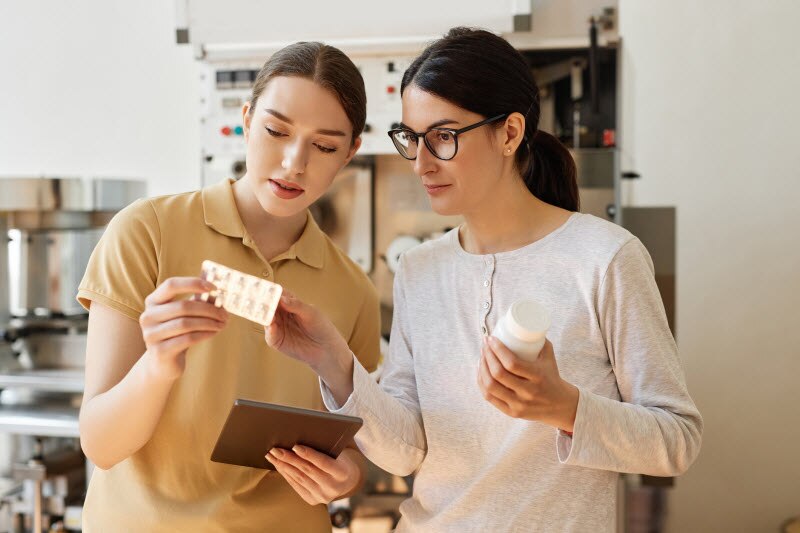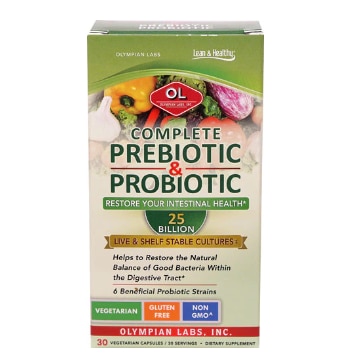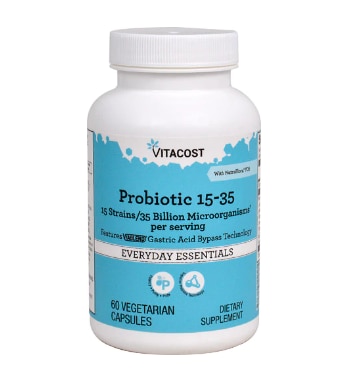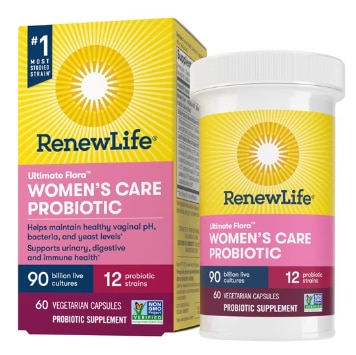Probiotics have been used to ferment and preserve foods for thousands of years. But they didn’t enjoy widespread popularity until recently as research began uncovering new details about the importance of the gut microbiome.
Now part of a market that could be worth $78.3 billion by 2026, probiotic supplements and foods are widely touted as beneficial for gut health, immunity and a wide range of common ailments.
Before you rush off and stock up, here are five (somewhat unusual) probiotics facts you should know.
Probiotics Facts: 5 Important Things to Know
1. Probiotics aren’t just for your gut
Your microbiome is much more extensive than you might imagine. Microbes reside in areas throughout the body, including:
- Skin
- Mouth
- Nose
- Lungs
- Small and large intestine
The mouth alone houses around 700 different kinds of microorganisms!
Microbes in one area can also influence the populations — and therefore the health — of other areas. For example, some evidence indicates pathogenic bacteria from periodontal disease (Porphyromonas gingivalis) can enter the bloodstream and trigger an inflammatory immune response. The effects of such interactions aren’t yet fully understood.
2. Your appendix might be a probiotic hotel
The proverbial “useless” organ hanging out next to your colon may not be so useless after all. In 2007, research out of Duke University suggested a surprising function for the much-maligned appendix: It could be a “safe and undisturbed” place to house a reserve of gut bacteria.
A high prevalence of biofilms may mean the appendix plays host to beneficial microbes and protects the organisms from pathogens. When you get sick or have digestive trouble, these sheltered bacteria could emerge to repopulate your gut and restore balance.
3. Transient probiotics have benefits
You may have heard probiotic supplements don’t “stick around” in the gut and therefore aren’t as beneficial as they’re claimed to be. This is partly true; probiotics in pill or food form are transient, meaning they only spend two or three weeks in your gut. But while they’re around, they can:
- Target and eliminate harmful microbes
- Produce beneficial metabolites
- Influence immune function
- Strengthen the gut barrier
- Help maintain or restore microbial balance
Transience may be preferable, as well. If every probiotic you encountered decided to hunker down and reproduce, you could wind up with a nasty case of dysbiosis instead of a happy, healthy gut.
4. Fungi can be probiotics, too
All the hype about candida has cast yeast as the bad guy, but some yeasts can act as beneficial probiotics. Sometimes referred to as the “mycobiotia,” this population of beneficial fungi live in harmony with the other microbes in your gut — where there may be over 180 different fungal species! Of these, Saccharomyces boulardii is the most widely studied fungal probiotic.
Because the mycobiota is still a fairly new discovery, more research is needed to know exactly what benefits these fungi confer. It appears that they exert some level of influence on microbial balance, as seen in the negative consequences of candida infections. On the plus side, the mycobiota could have positive effects on the immune system.
5. Not all probiotic supplements actually contain probiotics
This is probably the most important, albeit disappointing, thing to know about probiotic supplements: They don’t all contain what’s on the label. Some products making big claims have few to no live cultures left by the time you buy them. Others don’t use enteric coatings to protect cultures from stomach acid, so the microbes never make it to the intestines to work their magic.
To be sure you’re getting your money’s worth, look for brands offering a guarantee that a specific number of colony-forming units (CFUs) will still be active by the end of the product’s shelf life. Reading reviews and product analyses online can also be helpful in determining if a particular brand lives up to its marketing.
How to Use Probiotics Safely
Although probiotics are generally considered safe for healthy people, it is possible to experience side effects, such as:
- Bloating
- Excessive gas production
- Brain fog
- Fatigue
- Dysbiosis
If you’re taking medications that affect your digestion or have been diagnosed with a gut condition, talk to your doctor before starting a probiotic supplement. In some cases, such as the bacterial overgrowth characteristic of SIBO, probiotics can make symptoms worse. Immunocompromised individuals are also cautioned against taking probiotics due to the risk of infection or reactions.
There’s a lot more that research has yet to uncover about how the complex microbiome in and on your body interacts with the probiotics you ingest — both from food and supplements. Science has only scratched the surface of what probiotics can do, and its likely to reveal even more surprising functions and benefits in the future.
†These statements have not been approved by the Food and Drug Administration. These products are not intended to diagnose, treat, cure or prevent disease.




